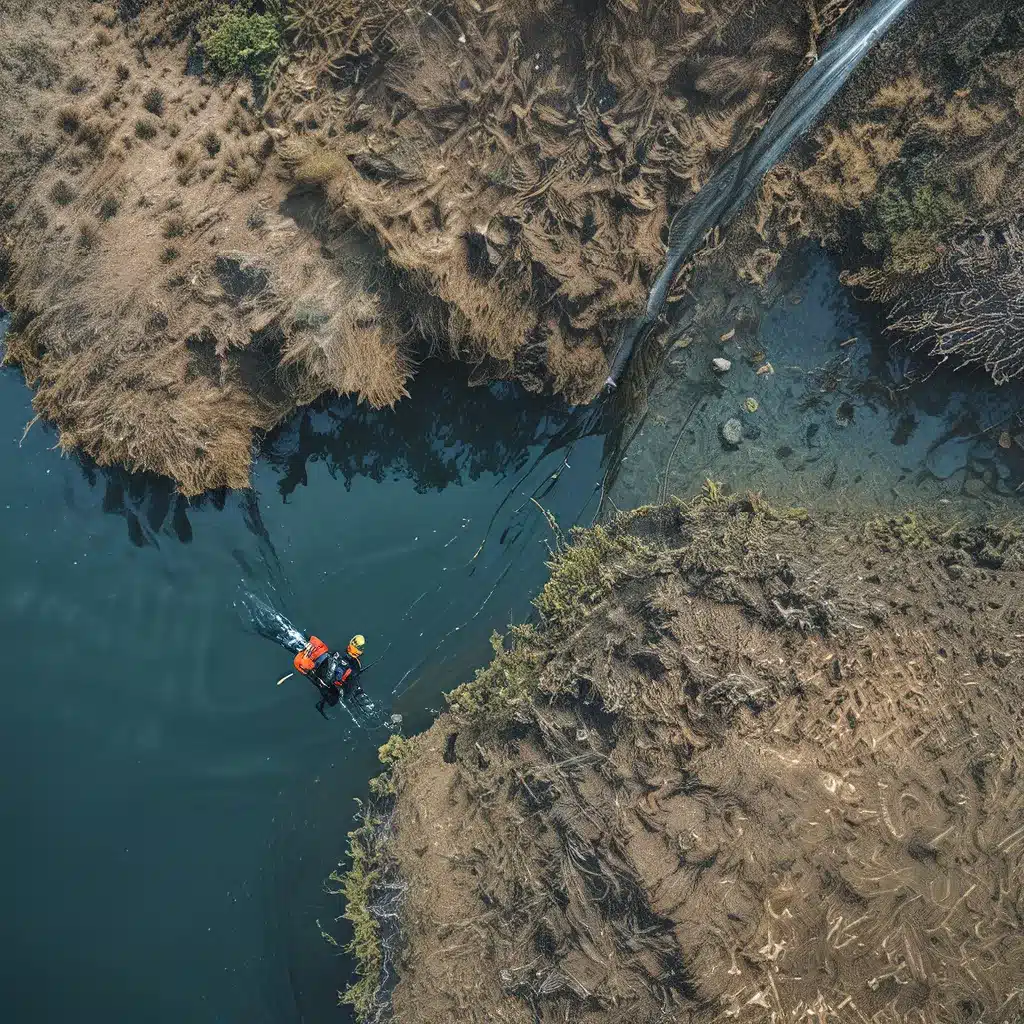
The Water World’s Digital Transformation
Picture this: a bustling water treatment plant, where cutting-edge technologies are seamlessly orchestrating the entire operation. Sensors monitor water quality in real-time, while AI-powered algorithms analyze the data, making split-second decisions to optimize the treatment process. Automation handles the mundane tasks, freeing up the human workforce to focus on strategic initiatives. Welcome to the digital frontier of water management – a realm where the once-analog world of water has been transformed by the power of emerging technologies.
Gone are the days when managing water resources was a purely manual endeavor. The water industry is now firmly entrenched in the digital age, embracing a range of innovative solutions that are redefining the way we approach water challenges. From the Internet of Things (IoT) to artificial intelligence (AI), the landscape of water management is being reshaped, offering unprecedented efficiency, sustainability, and resilience.
Diving into the IoT Revolution
One of the driving forces behind the digital transformation of water management is the Internet of Things (IoT). By connecting a vast network of sensors, devices, and systems, IoT technology is providing water utilities and treatment plants with a goldmine of real-time data. This data is the lifeblood of the digital water ecosystem, enabling informed decision-making and proactive problem-solving.
Imagine a water treatment facility where IoT-enabled sensors are constantly monitoring water quality, flow rates, and equipment performance. This information is then fed into a centralized analytics platform, where AI algorithms identify patterns, detect anomalies, and make recommendations for optimizing the treatment process. The result? Improved efficiency, reduced operational costs, and enhanced environmental sustainability.
Harnessing the Power of Artificial Intelligence
Stepping beyond the realm of IoT, the water industry is also embracing the transformative potential of artificial intelligence (AI). This cutting-edge technology is revolutionizing the way we approach water management, from predictive maintenance to smart water distribution.
AI-powered analytical models are now capable of sifting through vast troves of data, extracting insights that would have once eluded even the most seasoned water experts. These insights can then be used to forecast demand, anticipate equipment failures, and even predict the impact of environmental factors on water quality. By proactively addressing challenges, water utilities can minimize disruptions, reduce waste, and ensure the reliable delivery of clean water to communities.
But the benefits of AI extend far beyond data analysis. Machine learning algorithms are also being deployed to optimize the treatment process itself, adjusting parameters in real-time to meet changing demands and environmental conditions. Imagine a water treatment plant that can autonomously adjust its chemical dosing or filtration processes based on the ever-evolving needs of the system. This level of automation not only enhances efficiency but also reduces the risk of human error, ultimately safeguarding the quality of the water supply.
Embracing the Digital Water Ecosystem
As the water industry continues to dive deeper into the digital frontier, the emergence of a “digital water ecosystem” is transforming the way water utilities and treatment plants operate. This interconnected network of IoT devices, AI-powered analytics, and cloud-based platforms is enabling unprecedented collaboration and data-sharing across the entire water management landscape.
Imagine a scenario where a water utility in one region can access real-time data from a neighboring utility’s treatment plant, allowing them to anticipate and respond to potential disruptions in the regional water supply. Or picture a scenario where water treatment facilities can share predictive maintenance insights, enabling the entire industry to collectively address equipment failures and optimize asset management.
The digital water ecosystem is not just about technology – it’s about cultivating a culture of innovation, collaboration, and continuous improvement. By embracing this holistic approach, water management professionals can unlock a new era of efficiency, resilience, and environmental stewardship.
Overcoming the Challenges
Of course, the path to a fully digitalized water management landscape is not without its challenges. As with any technological revolution, the integration of emerging technologies in the water industry comes with its fair share of hurdles, from data security concerns to the need for workforce upskilling.
One of the primary challenges is data security and privacy. As water utilities and treatment plants become increasingly reliant on interconnected digital systems, the risk of cyber threats and data breaches looms large. Robust cybersecurity measures, including encryption protocols and access controls, are crucial to safeguarding sensitive information and building public trust.
Additionally, the rapid pace of technological change requires a skilled and adaptable workforce. Water management professionals must be equipped with the right digital skills to effectively leverage the capabilities of IoT, AI, and other emerging technologies. Investing in continuous training and upskilling programs can help water utilities and treatment plants bridge this talent gap and ensure a smooth digital transformation.
Embracing the Future of Water Management
As we dive deeper into the digital frontier, the future of water management is brimming with possibilities. The integration of emerging technologies is not just about incremental improvements – it’s a transformative shift that is redefining the very foundation of how we manage, distribute, and conserve this precious resource.
The water industry’s digital transformation is not just about efficiency and cost savings. It’s about building a more sustainable, resilient, and environmentally-conscious water management ecosystem. By harnessing the power of IoT, AI, and other cutting-edge technologies, water utilities and treatment plants can optimize their operations, reduce waste, and safeguard the long-term availability of clean water for generations to come.
As we continue to explore the digital frontier, one thing is certain: the future of water management is undoubtedly digital. And for those who are willing to embrace this transformation, the rewards are boundless.


